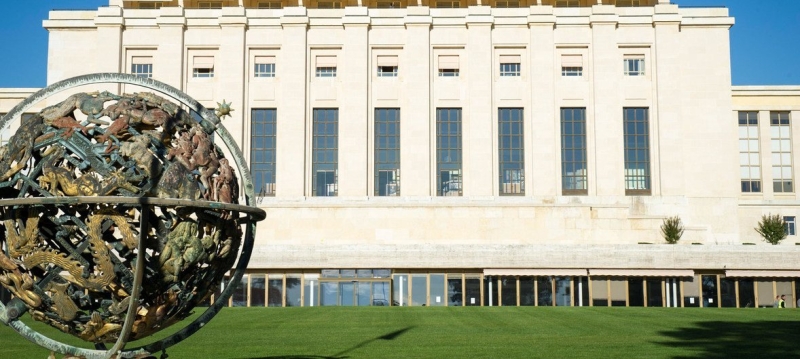
UN building in Geneva UN expert: ECHR decision on teaching in Russian in Latvia is a clear case of discrimination Human rights
Treating people with different needs and characteristics equally can lead to discrimination, said UN Special Rapporteur on minority issues Nicolas Levra. Persons belonging to minorities are not in the same situation as members of the majority, and in order to protect them from discrimination, they need a special approach – taking into account their situation and needs, Levra emphasized in his report presented on Thursday at the 55th session of the Human Rights Council in Geneva.
In his report, the human rights activist cited the recent decision of the European Court of Human Rights (ECHR) as one example. The applicants complained that as a result of the reform of the Latvian Education Law carried out in 2018, “in private schools the proportion of subjects that must be taught in the state language, that is, Latvian, was increased and, accordingly, the use of Russian as a language was reduced. language of instruction.”
On November 16, 2023, the ECHR court declared legal the transfer of education in private schools to the Latvian language, without finding evidence of discrimination against Russian-speaking students.
As noted in court, on the one hand, it can be argued that the state has a “positive” obligation to treat different groups of students differently, on the other hand, all students – regardless of their native language, they are in the same situation because they want to gain access to education in Latvia.
The court took into account that domestic legislation does not grant special status to any other language other than Latvian. That is, in this case, the ECtHR chose a “negative” interpretation of the principle of non-discrimination, implying the same approach to different groups.
“In such cases, the court must decide whether students are in the same , or in different situations, and he admits that both points of view have a right to exist. However, he then comes to the conclusion that the applicants are in the same situation as those belonging to the majority of the population,” the expert’s report states.
“From the point of view from the perspective of minority rights, this is a clear case of discrimination in the equal enjoyment of the right to education,” concluded Levra.
*Special Rapporteurs are appointed by the Human Rights Council. They are not UN employees and are not dependent on any government or organization. They work in a personal capacity and are not paid for their work.
